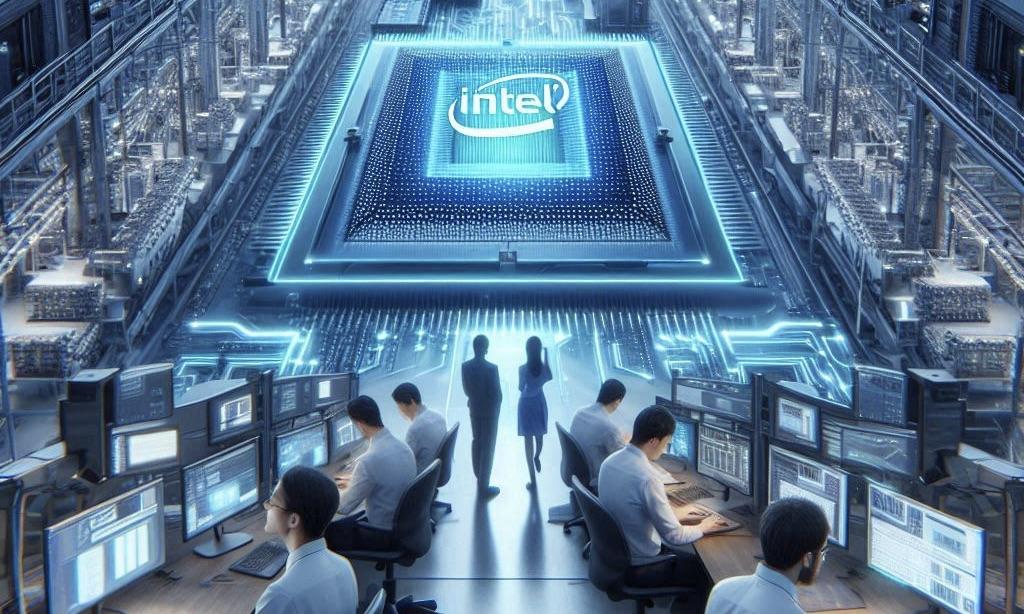Intel is poised to propose the sale of its Altera unit and a freeze on its $30 billion German facility at an upcoming board meeting. However, the company will retain its chip manufacturing business as it navigates financial pressures and prepares for a critical turnaround.
Intel Faces Critical September Board Meeting Amid Investor Concerns, Plans Altera Sale and German Facility Freeze
In recent quarters, Intel investors have been confronted with whether this is the bottom. Unfortunately, the response has been negative, and investors are again depending on a critical board meeting in September to suspend Intel's ongoing decline and initiate a sustainable recovery, as the company's market capitalization has fallen below the significant $100 billion threshold.
Bloomberg reported on August 30 that Intel was collaborating with numerous financial advisers, including Morgan Stanley, to develop strategic options for the forthcoming board meeting. This was the initial indication of a significant revival plan. These advisers are also helping Intel defend against a high-profile attack from activist investors still dissatisfied with the company's current turmoil.
Intel intends to propose the sale of its FPGA unit Altera at the forthcoming board meeting, as per the most recent reporting by Reuters. The company cites a need for more intrinsic profits to support Altera's operations. A construction freeze on Intel's $30 billion facility in Germany is another option currently being considered. This aligns with the company's plan to reduce capital expenditure by 17 percent in 2025 to $21.5 billion.
At the board meeting, Reuters reported that Intel would not propose selling its chip manufacturing division. This item is particularly noteworthy. This is a reasonable response, as Intel has been granted billions of dollars in federal funding to establish a substantial manufacturing presence in the United States, complicating any prospective divestment strategy.
Intel's Focus on Foundry Unit Faces Challenges Amid Lip-Bu Tan's Resignation Over Innovation Stalemate
Intel is currently emphasizing its Foundry unit to foster margin expansion. By 2030, the company expects that the continuous expansion of this unit will result in cost savings of "more than $8 billion to $10 billion exiting 2025," potentially attaining a non-GAAP gross margin of approximately 60 percent and non-GAAP operating margins of roughly 40 percent.
Despite these endeavors, Intel may be compelled to contemplate the divestment of its semiconductor manufacturing unit due to the obstacles it is currently encountering.
According to Wccftech, this week, it was reported that Lip-Bu Tan, a prominent board member of Intel, has resigned. Tan attributed the board's unwillingness to adopt his proposals for transforming Intel's contract manufacturing business into a more customer-centric entity and reducing the bureaucracy, which he sees as a hindrance to innovation in the company's desktop and server divisions. This bureaucracy includes an excessive number of middle managers.



 Meta Signs Multi-Billion Dollar AI Chip Deal With Google to Power Next-Gen AI Models
Meta Signs Multi-Billion Dollar AI Chip Deal With Google to Power Next-Gen AI Models  Paramount Skydance to Acquire Warner Bros Discovery in $110 Billion Media Mega-Deal
Paramount Skydance to Acquire Warner Bros Discovery in $110 Billion Media Mega-Deal  Amazon’s $50B OpenAI Investment Tied to AGI Milestone and IPO Plans
Amazon’s $50B OpenAI Investment Tied to AGI Milestone and IPO Plans  Netflix Stock Jumps 14% After Exiting Warner Bros Deal as Paramount Seals $110 Billion Acquisition
Netflix Stock Jumps 14% After Exiting Warner Bros Deal as Paramount Seals $110 Billion Acquisition  OpenAI Faces Scrutiny After Banning ChatGPT Account of Tumbler Ridge Shooting Suspect
OpenAI Faces Scrutiny After Banning ChatGPT Account of Tumbler Ridge Shooting Suspect  Samsung and SK Hynix Shares Hit Record Highs as Nvidia Earnings Boost AI Chip Demand
Samsung and SK Hynix Shares Hit Record Highs as Nvidia Earnings Boost AI Chip Demand  Nvidia Earnings Beat Expectations as AI Demand Surges, Stock Rises on Strong Revenue Outlook
Nvidia Earnings Beat Expectations as AI Demand Surges, Stock Rises on Strong Revenue Outlook  Snowflake Forecasts Strong Fiscal 2027 Revenue Growth as Enterprise AI Demand Surges
Snowflake Forecasts Strong Fiscal 2027 Revenue Growth as Enterprise AI Demand Surges  Trump Orders Federal Agencies to Halt Use of Anthropic AI Technology
Trump Orders Federal Agencies to Halt Use of Anthropic AI Technology  Samsung Electronics Stock Poised for $1 Trillion Valuation Amid AI and Memory Boom
Samsung Electronics Stock Poised for $1 Trillion Valuation Amid AI and Memory Boom  Australia Targets AI Platforms With Strict Age Verification Rules
Australia Targets AI Platforms With Strict Age Verification Rules  Trump Media Weighs Truth Social Spin-Off Amid $6B Fusion Energy Pivot
Trump Media Weighs Truth Social Spin-Off Amid $6B Fusion Energy Pivot  Synopsys Q2 Revenue Forecast Misses Expectations Amid China Export Curbs and AI Shift
Synopsys Q2 Revenue Forecast Misses Expectations Amid China Export Curbs and AI Shift  Trump Pushes Tech Giants to Build Power Plants to Offset AI Data Center Energy Costs
Trump Pushes Tech Giants to Build Power Plants to Offset AI Data Center Energy Costs  AWS Data Center in UAE Hit by Fire After Objects Strike Facility Amid Regional Tensions
AWS Data Center in UAE Hit by Fire After Objects Strike Facility Amid Regional Tensions  Pentagon Weighs Supply Chain Risk Designation for Anthropic Over Claude AI Use
Pentagon Weighs Supply Chain Risk Designation for Anthropic Over Claude AI Use 































